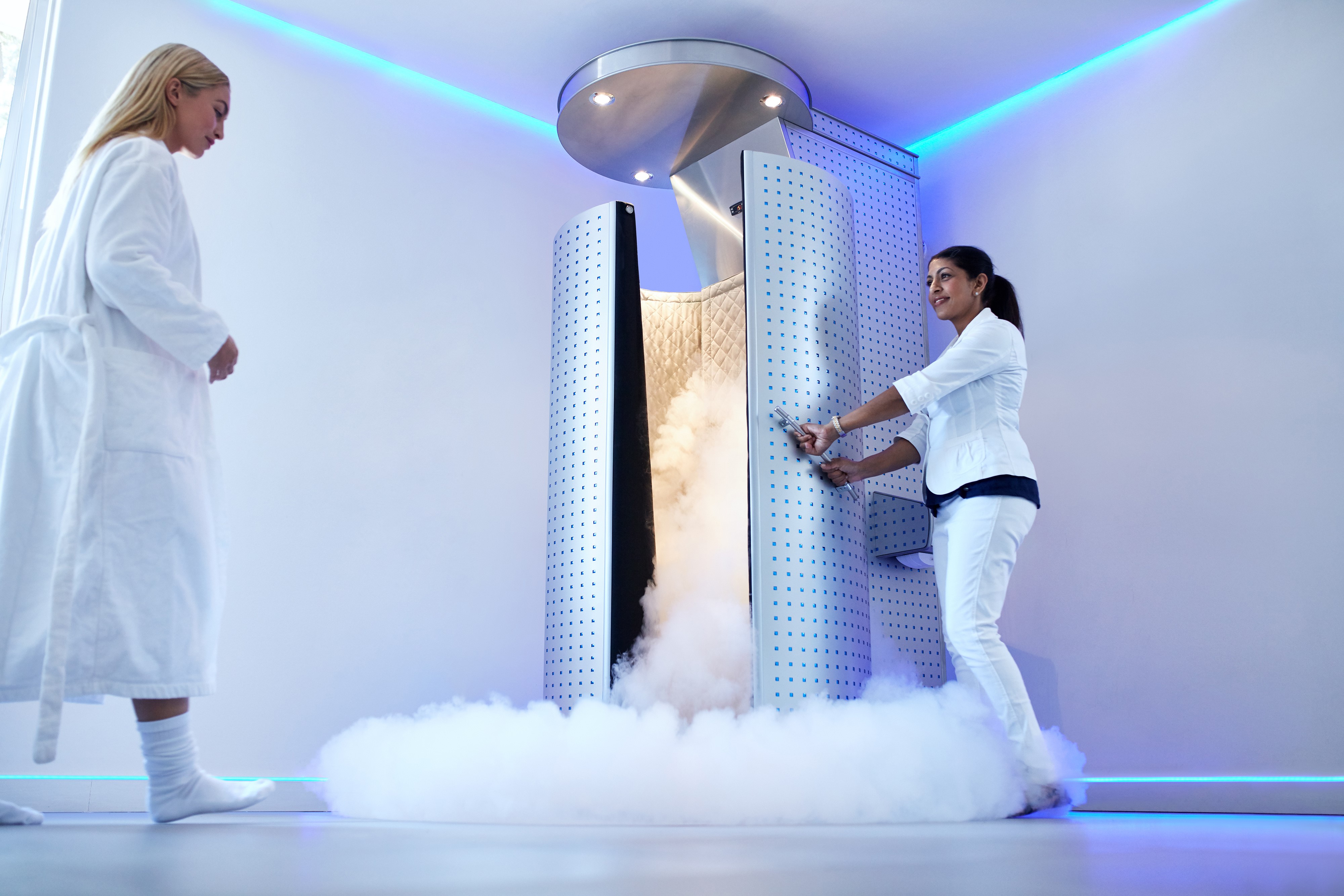Social media has been marketing it, coaches have started promoting it, athletes have started using it and even Tik-Tok has hopped onto the bandwagon. So now it's time we talk about it. Cryotherapy.
What is Cryotherapy?
Novel or high stress exercise is known to result in exercise-induced muscle damage and inflammation which in turn can reduce performance potential.3 Hence, the focus on selecting the most effective recovery strategy to optimise future performance.3
Cryotherapy has become the new hit recovery strategy.2 This intervention involves the utilisation of very low temperatures (-85o to -125oC) as a means of accelerating recovery following strenuous exercise.2
There is an ever-growing perception that the use of these extreme low temperatures supposedly offers enhanced benefits for recovery in comparison to more conventional methods such as rest or cold water immersion (10o to 15oC).2 The premise behind the use of cryotherapy following exercise is attributed to its supposed ability to reduce inflammation.1
But is this really the case?
Fact or fiction?
Researchers have investigated the effects of cryotherapy on subjective and objective markers of recovery following both high volume, heavy load resistance training and distance running (marathon).2,3
Both studies found that cryotherapy can in fact reduce levels of perceived muscle soreness following high intensity activity.1,2,3 But don’t be fooled, whilst you may be feeling better the severe cold your body has been subjected too is actually doing more harm than good.3
The truth.
According to research, cryotherapy offers no improvements in functional recovery post exercise compared to conventional methods.2,3 In addition, it was found that cryotherapy has a harmful effect on muscle function and can actually increase inflammatory markers leading to an enhanced inflammatory response following exercise.2,3
The escalation in the inflammatory cascade is due to the body's stress response elicited as a result of exposure to significant reductions in muscle temperature.2,3 The body interprets the severely cold temperatures as noxious stimuli and in response increases markers of inflammation ultimately delaying recovery and impairing athletic performance.3
Matter over mind!
You may be thinking now, if there's no evidence to support the use of cryotherapy, then how does it make my muscles feel better? The answer is… placebo!2,3 In other words it is the belief and expectation that cryotherapy will make you feel better which is responsible for the beneficial effects experienced.3
In conclusion…
It's time to save your dollars! It is clear that cryotherapy is no special recipe to achieving faster and more effective recovery.2,3 In fact, it offers no functional benefit at all and can actually have harmful effects on the body.2,3 Therefore, these research findings should be carefully reviewed by individuals considering utilising cryotherapy as a recovery strategy following strenuous exercise.2
Sources:
- 1. Hohenauer, E., Taeymans, J., Baeyens, J. P., Clarys, P., & Clijsen, R. (2015). The Effect of Post-Exercise Cryotherapy on Recovery Characteristics: A Systematic Review and Meta-Analysis. PloS one, 10(9), e0139028. https://doi.org/10.1371/journal.pone.0139028
- 2. Wilson, L. J., Dimitriou, L., Hills, F. A., Gondek, M. B., & Cockburn, E. (2019). Whole body cryotherapy, cold water immersion, or a placebo following resistance exercise: a case of mind over matter?. European journal of applied physiology, 119(1), 135–147. https://doi.org/10.1007/s00421-018-4008-7
- 3. Wilson, L. J., Cockburn, E., Paice, K., Sinclair, S., Faki, T., Hills, F. A., Gondek, M. B., Wood, A., & Dimitriou, L. (2018). Recovery following a marathon: a comparison of cold water immersion, whole body cryotherapy and a placebo control. European journal of applied physiology, 118(1), 153–163. https://doi.org/10.1007/s00421-017-3757-z

